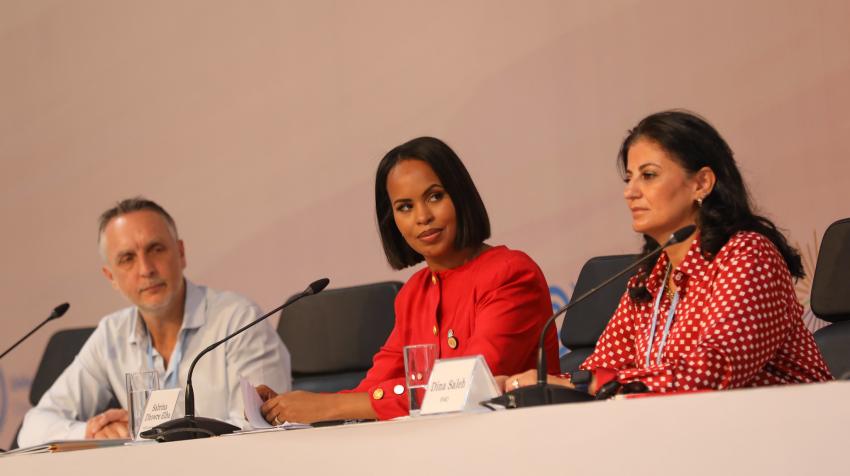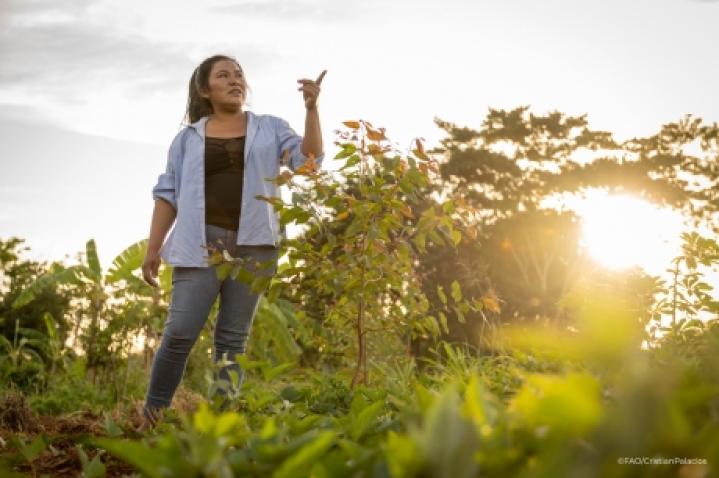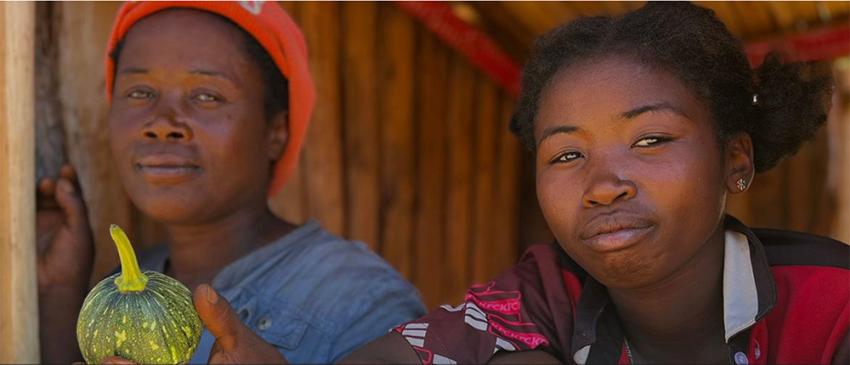Extreme weather events, such as droughts, storms and floods, are putting pressure on the ecosystems that farmers depend on, as are gradual processes such as rising sea levels and melting glaciers, says the International Fund for Agricultural Development (IFAD).
Moreover, nearly 50 per cent of agricultural workers are women, who have even lesser access to resources to improve their land and livelihoods.
IFAD Goodwill Ambassador Sabrina Dhowre Elba talks about the importance of investing and empowering rural communities, especially women and girls, to adapt to the impacts of climate change.
Question: What is the message that you have brought to COP27?
Sabrina Dhowre Elba: One of the main messages we've been carrying at this COP is for countries to step up and actually act out all the planning that's been made. We’ve had the conversations, we've had so much talk and funding is now coming in around the issues but the funding isn't getting to the people that need it most.
There's now an importance on adaptation and mitigation as equal parts because it's important for people who are suffering the effects now. We just want to see that funding trickle down in a meaningful way - 1.7 per cent is all that people in rural communities get from climate funding. It's a joke; it’s so unjust.
I want to see funding approached in a way that makes sense, that there is a long-term way of thinking because we don't want short-term solutions that only lead to more crises, and more money to be brought up as aid. We want to see long-term solutions so that things like this don't happen.
Question: Why is it so important to support rural communities?
Sabrina Dhowre Elba: The effects of climate change in rural areas around the world are devastating. While it is technically at the doorstep of everyone - we’ve seen the drought in Europe, we've seen the heat waves in America, but rural people are suffering most when they're looking every day for what to eat and how to get by. It's so much more serious, the conditions there than it really is anywhere else. I mean, it's literally adapt or starve.
Question: Women and girls in rural areas suffer disproportionately. How to empower women to lead change with solutions that can improve their lives?
Sabrina Dhowre Elba: Women and girls are always at the frontline of climate change. They are the faces of climate change, they make up a majority of the rural communities, and they make up the majority of the informal market.
It's just a matter of empowering women and giving them an opportunity to not only be part of the agenda, but step up and set the agenda. They need to be able to make decisions in a meaningful way so that they can help lead some of the change that we want to see. And we hear all the time that when you empower a woman, you empower a nation, because women are more likely to give funding back home, they're more likely to use it in a way that makes sense, and send their children to school.
I think empowering women is really at the heart of everything that we champion, and it's one of the reasons I work with IFAD as well because of their gender policies. And I just want to see women and girls be empowered in a way that actually translates and seeps through to the most vulnerable people on this planet.
That’s why gender transformative action is so important.
Question: What inspired you to support IFAD?
Sabrina Dhowre Elba: My mom was a huge advocate. She's probably the reason I worked with IFAD because she understood the importance of agriculture growing up in a community that depended on the land. And she actually introduced IFAD to me so I thank her every day for her philanthropic work because it has really inspired me.
Read what other prominent Voices from COP27 are saying about the themes, negations and the way forward.



